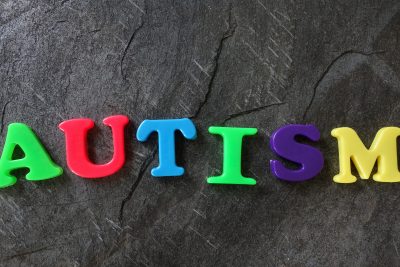It is a common misconception that people who have Asperger’s or Autism do not get depression.
In fact this is more common than you think!
Suicidal thoughts are ten times more likely in people with Asperger’s or in the Autism Spectrum. Survey data was used on 256 men and 118 women who were diagnosed:
66% reported suicidal thoughts
35% reported plans or attempts at suicide
31% reported depression
Depression can be caused by:
Social troubles because you do not seem to fit in
Guilt or regret over past actions/outbursts/meltdowns
Overwhelming feelings and thoughts
Anxiety and Panic Attacks
Miscommunications / Misunderstandings
Fatigue or Tiredness due either to the condition or to medications taken for the condition (e.g.: Ritalin)
Here are some comments people with Asperger’s have made:
(Comments have been made anonymously)
“I have been diagnosed with Asperger’s syndrome and depression.
My repeated obsessive thoughts turn into that sadness and also when someone gets frustrated with me like my parents. I don’t even know how I feel sometimes. When I can’t learn from my mistakes as fast as everyone else. I feel hopeless because it’s how I’m made to make mistakes over and over without ending.”
“I understand. Repeating the same mistake over and over…I would always forget to leave my coat in my locker at school (because of some rule) and 4 days out of 5 I would forget it. Consistently. And my repetitive obsessive thoughts also turn into sadness, but for me this occurs irrespectively of being yelled at.”
“I have Asperger’s and am high functioning to a degree. I also suffer from depression and anxiety which a lot stems to the fact my circle of friends has drastically dropped since my teenage years, I’m nearly 23 and I don’t go out like most people my age do. Mainly because I socially isolate myself. I find situations arise when I go out, for example…a club I used to go to has very loud bands on Friday nights, I can’t hear my thoughts it screws with my head. It depresses me because when I was younger I had loads of friends, now I’m a social outcast who feels nothing but bitterness and anger towards a lot of society. Al lot of my friends don’t want nothing to do with me anymore. Best friends have come and gone and now I feel alone. I live alone which doesn’t help and rely on Xbox live to chat to people. I just wish sometimes I wouldn’t come out with weird stuff. It freaks me out as well as it does to other people.”
The first step to helping, is by recognizing the signs:
A suicide attempt is rarely made all of a sudden. It is most common for individuals to shift between the stages on a continuum which range from thinking about suicide to committing suicide.
The stages can go back and forth and are not limited to:
Planning – for example, giving away possessions that were thought of as special to them.
Organizing means – a fascination with a certain weapon that they were not interested in before, for example.
Suicide attempt
Some may start in self harming behavior which can lead to death while the goal is not to actually die. This is because these individuals may not have actually thought of the consequences and finality of suicide.
Pay attention to:
Statements like “I would be better if I just died”
Threatening to commit suicide
If they are more withdrawn or depressed: not participating in their routine activities, they avoid communicating even more than usual.
Recognizing the signs is even harder when some people with Autism or Asperger’s cannot communicate the conventional way.
Here is how you can help someone who is depressed
People who consider suicide mostly need to know that others do care:
Even if you don’t talk, just being there helps
Let them know that most people think about suicide at one time or another, and thinking about suicide does not mean that things can’t get better.
Listen to what they are saying about themselves and their life
Avoid saying things like “you should be grateful to be alive!” or “You will be fine”
Tell them that you will always be willing to talk and there are others who care
Inspire them to make new friends or contact old friends or even call the Suicide Prevention Lifeline. https://www.suicidepreventionlifeline.org/– 1-800-273-8255. The Lifeline offers online chat, which is a good option when individuals are non-verbal or when social anxiety is high.
If you see that there is an imminent danger of the individual to commit suicide:
If it is an emergency, call 911
Contact outside help or make sure they contact their Doctor
Monitor their temperament and establish a follow up plan when there are changes – the plan can include calling the Doctor, making sure they call the National Suicide Prevention Lifeline – https://www.suicidepreventionlifeline.org/ or call 1-800-273-8255.
Make sure to remove any means that can facilitate suicide – prescription drugs, weapons, etc.
Most of all let them know that there are always people who are ready to help them. It is important for them to know that it’s ok to ask for help and let either family members, friends or professionals how they feel.
References:
Synapse, Reconnecting Lives, Fact Sheets: Depression, Suicide Risk and Autism
Retrieved from – http://www.autism-help.org/family-suicide-depression-autism.htm
Collingwood, J. Suicidal Thoughts 10 Times More Likely in Adults with Asperger’s.
Retrieved from http://psychcentral.com/news/2014/10/13/suicidal-thoughts-10-times-more-likely-in-
adults-with-aspergers/76016.html
Cassidy, S. et al. Suicidal ideation and suicide plans or attempts in adults with Asperger’s syndrome
Attending a specialist diagnostic clinic: a clinical cohort study. The Lancet Psychiatry, 25 June 2014 doi:
10.1016/S2215-0366(14)70248-2
Raja, M. Suicide risk in adults with Asperger’s syndrome. The Lancet Psychiatry, 25 June 2014
Doi:10.1016/S2215-0366(14)70257-3

